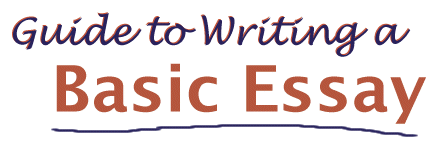
TOEFL, IELTS ライティング (エッセイ)問題では、
得点を上げるためには、” well organized ” (構成が整っている)が必要です。
構成が整っているエッセイは得点が高くなるばかりではなく、
あなたのエッセイに読み手を引き込むことができるのです。
” well organized ” (構成が整っている)にするために役立つのが
Transition word &phrasesです。

▮ Transition word &phrasesは段落、文章同士の接着剤
Transition word &phrasesとは、各文章や段落を結ぶ言葉やフレーズです。
各段落がストーリーとして結ばれて初めてエッセイとして成り立ちます。
段落、文章同士の接着剤のような役目ですね。

序文(Introduction)で示したthesis statement(主文)の具体的な内容を、
本文(body)の中で、Transition word &phrasesを上手に使うことで、
一つひとつ、論理的に説明を展開していきます。
つまり、Transition word &phrasesは”well organize” エッセイの構成に大変重要なのです。
以下に、代表的なTransition word &phrasesを紹介しますので、
是非、覚えて使えるようになってください。
▮ 代表的なTransition word &phrases
1. TIME – when explaining sequence of events
( 事の経緯を説明するときに使います)
Before next then often
After during always sometime
Since at the same time while meanwhile
2. DEGREE – when explaining why one thing is more or
less important than another thing
(より重要か又は重要でないかを説明するときに使います)

Most important first primarily essentially
Less important second secondary principally
Basically subordinate lesser chiefly
3. COMPARISON AND CONTRAST – when explaining how two or
more things are similar or different
(2つの意見を比較して、相違点又は類似点を説明するときに使います)
To Compare (類似するときに使います)
Similar to similarly like, alike either/or
Correspondingly resemblance almost the same as at the same time as
As just as in a like manner in the same way
Common in than also neither/nor
To Contrast (相違するときに使います)
Differ from however otherwise still
Nevertheless even though different from less than
More than unlike in contrast to on the other hand
Although while yet but instead
4. CAUSE AND EFFECT
– when explaining how something caused a change in something else
(物事の変化を説明するときに使います)

So thus consequently therefore
For this reason as a result because, because of owing to
Since due to although so that
5. EXPLANATION
– when explaining what something is by giving an example or
when restating something for emphasis
(例えを出したり、強調するために言い換えに使います)
In other words to clarify to explain to paraphrase
As like that is for example
Such as for instance to illustrate namely
6. ADDING MORE INFORMATION
– when adding information to make your point stronger
(主張を強調するための情報を加えるときに使います)
In addition besides furthermore as well as
Moreover similarly also what’s more







